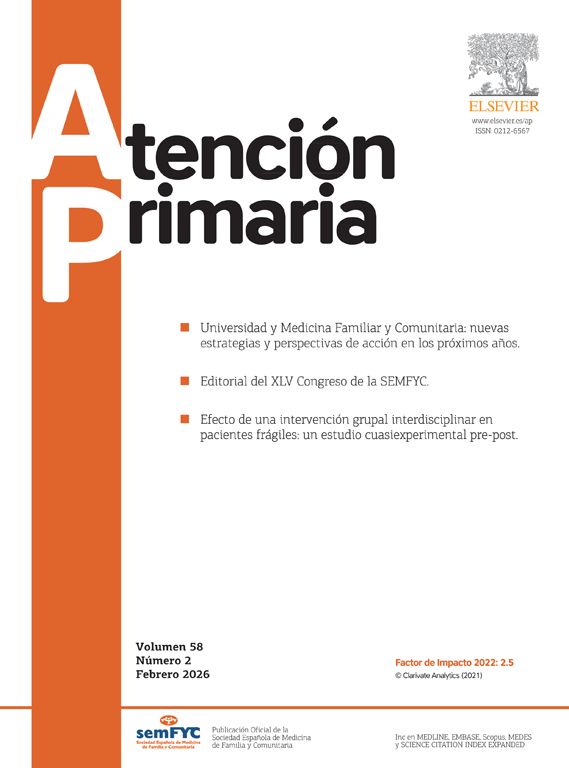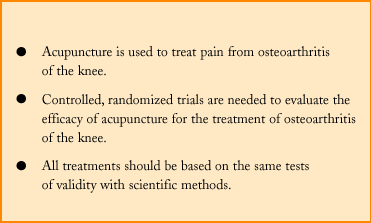For many of our patients, especially those with chronic illnesses, conventional treatments do not work satisfactorily, cause side effects, and do not always alleviate their suffering. Unfortunately osteoarthritis, like many other medical problems, remains chronic and incurable disease. It is well known that many patients with rheumatic disease-regardless of their level of education, background or socioeconomic level-have at some time tried alternative treatments. Because they feel defenseless against a slowly progressive and incapacitating disease, they seek treatments that are «natural» and magical. And because of the steady increase in the use of complementary and alternative medicine, there has also been increasing interest, on the part of physicians who treat rheumatic diseases, in learning about complementary therapies.1 The American College of Rheumatology (ACR) has recognized this current interest, and understands the motives and frustrations of patients who express interest in these approaches to treatment. To ignore these therapies would be a sign of disregard an imprudent position for a professional organization. The ACR supports the integration of all treatments of proven efficacy and safety, and recommends that such treatments be reviewed scientifically.
Of the variety of therapies available, acupuncture is the most widely used technique.2 Within the current context that favors evidence-based medicine, we cannot ignore acupuncture.
Accordingly, Ferrández et al. have undertaken a systematic review of the existing evidence for the effectiveness of acupuncture in the treatment of pain from osteoarthritis of the knee. They concluded that few well-designed studies have looked at the effectiveness of acupuncture for this problem, and that there is not enough evidence to recommend this therapy. An earlier systematic review reached the same conclusion.3
According to the National Consensus Conference on Acupuncture of the National Institutes of Health (NIH)4 in the USA, acupuncture «is a component of a health care system that has been used in China for at least 2000 years. The general theory of acupuncture is based on the premise that there are energy flows that move through the body and are essential for health». Western acupuncture is currently very different from that used in traditional Chinese medicine. Several studies have suggested that the analgesia produced by acupuncture is triggered by stimulation of small-caliber, high threshold nerves in the muscle tissue, from whence impulses are sent to the spinal cord and specific neurological centers, which release neurotransmitters that in turn block pain signals.5
Physicians who treat patients with chronic illnesses such as osteoarthritis of the knee should be aware that their patients are potential candidates for acupuncture treatment for their pain. They should therefore be prepared to inform patients about published data, and about the possible risks and benefits. They should also warn patients that acupuncture can be painful, and may be contraindicated in some cases. Acupuncture is an invasive medical procedure, and complications from inappropriate treatment have
been reported, hence the importance of adequate training standards as well as full knowledge of anatomy and appropriate hygienic measures.5
There is no scientific evidence from large-scale randomized clinical trials that acupuncture is effective in rheumatic processes. Occasionally, the sample size is too small to allow the results to reach statistical significance. The role of acupuncture in the treatment of musculoskeletal pain should be more carefully evaluated, although studies that compare real acupuncture with sham acupuncture appear to be difficult to perform because of the possible placebo effect, problems with interventions in the control group, and double blinding to avoid biasing the results. White et al. have prepared a consensus document for improving the design of studies that investigate the efficacy of acupuncture, and offer a number of recommendations to improve the quality of these studies.6 There appear to exist many treatment variables (such as point selection and form of stimulation) that should be controlled for when clinical trials are designed. For efficacy studies that aim to determine whether acupuncture is superior to a placebo, the authors of the review in this issue of Atención Primaria recommend sham procedures as the best method of control, as false negative results may be obtained if control procedures are inadequate.
Randomized, controlled studies of adequate methodological quality are important to evaluate acupuncture as a treatment alternative, as all treatments should be based on tests of validity with the same scientific methods. The only type of medicine is that which is based on science and evidence, and it is evidence-based medicine which we should aspire to practice.







